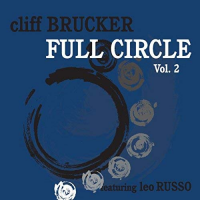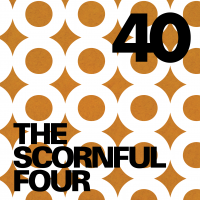Home » Jazz Articles » Catching Up With » Mike Stern: Living through a Jazz Clinic
Mike Stern: Living through a Jazz Clinic
You gotta go slow before you go fast. But you gotta keep going.
—Mike Stern
This is Mike Stern, guitar god.
Yeah, a god in a pantheon that might include John Scofield, Pat Metheny, John McLaughlin and Bill Frisell. These are artists charting the path forward for serious guitar. Imagine if one of them stepped down off his plugged-in, amped-up Olympus to coach you on improving your finger vibrato. Now imagine if the lesson wasn't so much about chops as it was about life.
Stern has been doing that in clinics and classrooms from Toronto to Boston to Bowling Green, Ohio. "I really don't do enough of these. I love to do it," he says. And the participants love it, too. At Bowling Green State University he drew a crowd that an academic might describe as "a classic latent variable mixture model." That's a melting pot of ages, races, and genders. Old guys who had seen Stern with Miles Davis. Young ladies in black swaying like shadows. A young man from middle school who wore a tie. Parents who had brought toddlers. And pros—even Rick Peckham, professor of guitar at the prestigious Berklee College of Music.
And yes, they did hear something about diatonics, chord voicing, and more. For example, when Stern muscles the top of the fretboard for a lick. "Hey, have you ever seen one of these?," he says. "Multi overtones!"
But Stern's core message is anything but showy. It's disciplined.
"Practice. Persevere. Finish. Find your own voice." In this sense, Mike Stern is to jazz what Benjamin Spock was to parenting.
Practice. Stern expresses this necessity in the gentle shibboleth, "water the flowers." Practice habituates the mind to learning. It builds skill. Good things—like gigs—come to musicians with skill set proficiency. Stern is a good example. It's said that he wakes up early to practice for several hours, then he practices with his musician wife Leni, and then a bassist comes over and they play for a few more hours.
Persevere. Be steadfast, despite difficulty or delay. "If you want something bad enough you can figure out a way," he says. "I learned about perseverance from Miles. He would get up and play when he had pain, when he had double pneumonia...when he'd had a mini stroke."
Stern worked with Davis from 1981 to 1983 and again in 1985. But the lessons of perseverance learned from the Prince of Darkness are nothing compared to the personal example Stern has set himself. He had a fall in the summer of 2016, and the result was broken bones and lingering nerve damage in his picking hand. "But ya gotta keep doing it, right?" he says. There followed multiple surgeries—and research on the appropriate surgeons—and a number of jerry-rigged solutions to holding the pick in his damaged hand. Think a special glove and Velcro, packing tape, and wig glue.
A lot of people know that story. But fewer know that Stern wrestled with intense feelings of inadequacy as a young man. "I was insecure and full of self-doubt. Lucky I lived in the basement apartment so I couldn't throw my guitar out the window! I felt shy and dumb. But you can get over that. Play with people who are more fluent. Get your ass kicked.
"I was playing with the band, and I was the new kid. And this one night they were blowing hard. Never seen 'em so good. They were so fast. I couldn't keep up. And for some reason it comes time for the guitar solo—and I'm last. And it's like 'Thud.'" Stern gestures with his hand to indicate the gig just fell off a cliff. "And the rest of the band is cool. They're like, 'It's okay. The kid is learning. He'll come around. But the bassist—Jaco Pastorius. This guy gets right in my face and says, "Man—that solo you played. That shit just ain't happening! At all!"
Everybody lives through stuff like that. Even guitar gods. "Hey, you gotta go slow before you go fast," says Stern. "But you gotta keep going.
"And you've got to finish. Take composing. Composing is a key way to get your own sound. I found that out pretty late, but it helped my concept. And it's important to finish everything. There's a tendency to say, 'This is no good,' crumple it up and throw it away. But you'll never get anywhere that way. Finish everything. And sometimes you play it and get some encouragement, and feel, well, that was pretty good. Not always, of course." (There's always the possibility of a Pastorius moment.)
And you've got to be true to yourself.
"Find your voice. That just happens. It happens for everybody, no matter what you do. Feel comfortable playing your heart out. That's the main thing."
Stern talks about offers he had from the Smooth Jazz community. "Those guys can really play, but there are constraints there in what you can do. It's about marketing the sound. I didn't want to live with those constraints.
"Whatever gets to your heart is cool. That's the most important thing. This is endless. Keeps me humble. I would never give it up for anything. If you've got the music, nobody can take that away from you."
Hard to believe that these Yoda-like pearls are dropping from the lips of Mike Stern, he of the rock-fusion firepower and scorched earth distortion-laced riffs. But according to the legend of Hephaestus, when that Greek god of fire returned to Olympus, he had a workshop where, working day and night, he produced many beautiful things. He is also credited with passing on his skill to mortal artists so that they too could create the sublime and the beautiful. How did he do this? Perhaps, like Mike Stern, he ran clinics.
Tags
PREVIOUS / NEXT
Mike Stern Concerts
Jul
9
Thu
Support All About Jazz
 All About Jazz has been a pillar of jazz since 1995, championing it as an art form and, more importantly, supporting the musicians who make it. Our enduring commitment has made "AAJ" one of the most culturally important websites of its kind, read by hundreds of thousands of fans, musicians and industry figures every month.
All About Jazz has been a pillar of jazz since 1995, championing it as an art form and, more importantly, supporting the musicians who make it. Our enduring commitment has made "AAJ" one of the most culturally important websites of its kind, read by hundreds of thousands of fans, musicians and industry figures every month.



























